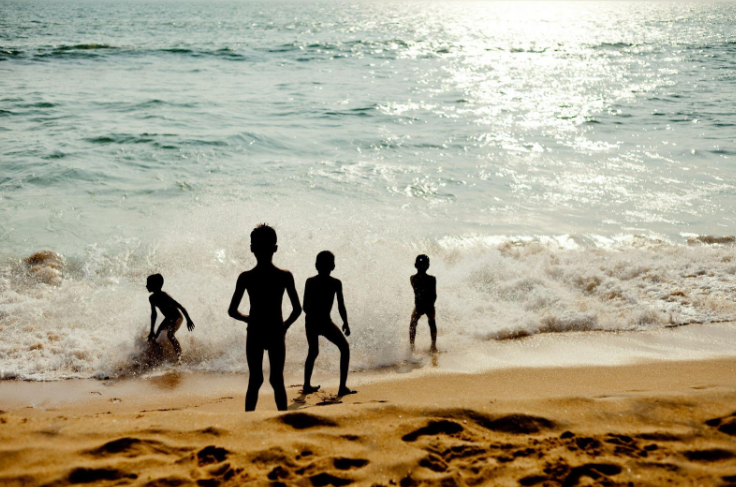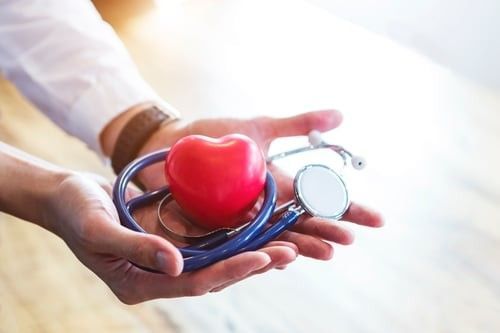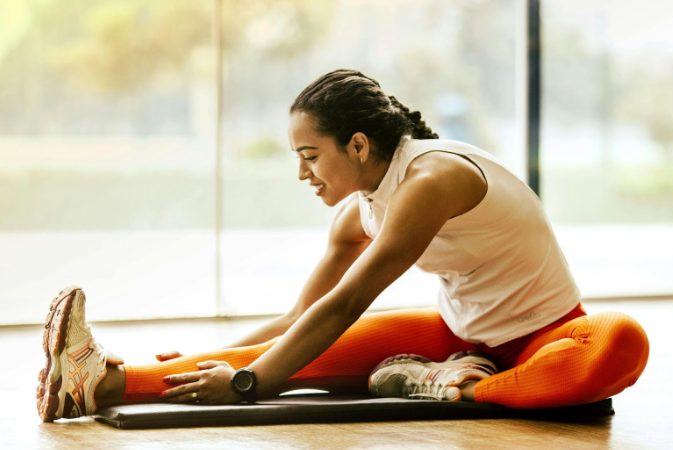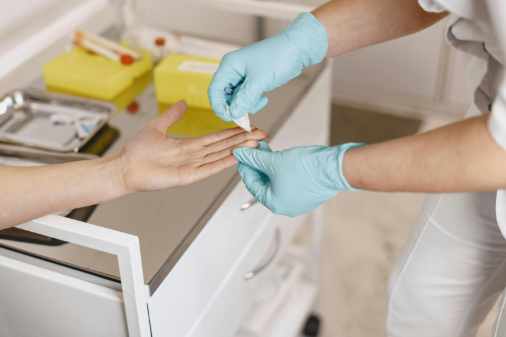Beating the Heat: How to Prevent Heat-Related Illnesses This Summer
Beating the Heat: How to Prevent Heat-Related Illnesses This Summer

Summer is a time for outdoor fun, vacations, and soaking up the sun, but rising temperatures also bring serious health risks. Heat-related illnesses, such as heat exhaustion and heat stroke, can happen quickly and be life-threatening if not addressed. If you’re planning to spend time at the beach, working outside, or just want to enjoy the summer outdoors, preparing beforehand to protect yourself and your loved ones from extreme heat is a great idea.
Here are some warning signs to watch out for and preventative measures to try that will make all the difference in staying safe during the hottest months of the year.
Heat-Related Illnesses and Why They Happen
Heat-related illnesses occur when the body struggles to regulate its temperature in hot and humid conditions. Normally, the body cools itself through sweating, but excessive heat or dehydration can interfere with this process. When the body cannot cool down effectively, it may lead to conditions like heat cramps, heat exhaustion, or heat stroke.
Heat cramps are the mildest form of heat-related illness, causing muscle spasms due to loss of electrolytes. Heat exhaustion occurs when prolonged exposure to high temperatures leads to heavy sweating, dehydration, and fatigue. If not treated, heat exhaustion can escalate to heat stroke, a severe and life-threatening condition in which the body’s temperature rises to dangerous levels, potentially causing organ damage or even death.
Who Is Most at Risk for Heat-Related Illnesses?
While anyone can suffer from heat-related illnesses, certain groups are at higher risk. Older adults, young children, and people with chronic health conditions, such as heart disease, diabetes, or respiratory illnesses, are particularly vulnerable. Their bodies may not regulate temperature as efficiently, making it harder for them to stay cool.
Outdoor workers, athletes, and individuals who spend extended periods in the sun are also at greater risk, especially if they do not take proper hydration and cooling measures. Even people who are generally healthy can experience heat-related illnesses if they push their bodies too hard in extreme temperatures.
Keeping Cool Through Hydration
When temperatures rise, the body loses fluids through sweat, and if those fluids aren’t replaced, dehydration can set in quickly. Drinking water consistently throughout the day can help combat this, though it can be tricky to do if you don’t feel thirsty. Thirst is often a late sign of dehydration, so it's best to stay ahead by sipping water regularly.
Electrolytes—minerals like sodium, potassium, and magnesium—also help to maintain hydration. If you’re sweating excessively, drinking sports drinks or eating fruits like bananas, oranges, and watermelon can help replenish lost electrolytes. However, be mindful of drinks with caffeine or alcohol, as they can contribute to dehydration rather than preventing it.
What to Wear and What to Avoid
Loose-fitting, light-colored clothing helps reflect the sun’s rays rather than absorbing them, keeping your body cooler. Breathable fabrics like cotton and moisture-wicking materials allow sweat to evaporate more efficiently, enhancing the body's natural cooling process.
Avoid wearing dark-colored clothing, as it absorbs heat and can make you feel even hotter. Tight-fitting clothes can also trap heat against your body, preventing airflow and making it harder to stay cool. If you’re heading outdoors, wearing a wide-brimmed hat and UV-blocking sunglasses can help protect against sun exposure and reduce heat absorption.
Seeking Shade and Avoiding Peak Sun Hours
Direct sunlight can significantly increase the risk of heat-related illnesses, especially during the hottest parts of the day. The sun is at its strongest between 10 A.M. and 4 P.M., so if possible, try to limit outdoor activities during these hours. If you need to be outside, take frequent breaks in shaded areas or air-conditioned spaces to give your body time to cool down.
Shaded areas, such as under trees, umbrellas, or canopies, can lower temperatures by several degrees, providing a much-needed break from the heat. If shade isn’t available, carrying a portable fan or misting device can help create a cooling effect when you're on the go.
The Warning Signs of Heat Exhaustion and Heat Stroke
Heat exhaustion typically starts with excessive sweating, dizziness, headache, nausea, and muscle cramps. If someone begins to feel weak or faint, it’s best to move them to a cool area, provide water, and encourage rest as soon as you comfortably can.
Heat stroke, though, is a medical emergency that requires
immediate attention. Symptoms include confusion, a rapid pulse, red or dry skin (due to the inability to sweat), and a dangerously high body temperature. If someone shows signs of heat stroke, call 911 immediately and try to cool them down with cold compresses or ice packs while waiting for medical help. Delaying treatment can lead to severe complications, including organ damage or even death.
Keeping Kids and Pets Safe in the Heat
Children and pets are especially vulnerable to extreme temperatures and require extra precautions to keep them safe. Never leave children or pets in a parked car, even for a short time, as temperatures inside a vehicle can rise to lethal levels within minutes. A car’s interior can heat up rapidly, even if the windows are cracked open, leading to fatal consequences.
When spending time outside, make sure kids and pets have access to shade and plenty of water. Young children may not always recognize the signs of overheating, so it’s best to monitor them closely and encourage hydration breaks. Pets, especially dogs with thick fur, are prone to heat exhaustion, so walking them during cooler hours and avoiding hot pavement can prevent burns and overheating.
The Role of Air Conditioning and Cooling Strategies
Air conditioning is one of the most effective ways to prevent heat-related illnesses, particularly during extreme heat waves. If your home lacks air conditioning, spending time in public places like shopping malls, libraries, or cooling centers can help you stay safe. Even a few hours in an air-conditioned environment can lower the risk of heat exhaustion.
If air conditioning isn't an option, using fans strategically, keeping blinds closed during peak sunlight hours, and taking cool showers can help maintain a comfortable indoor temperature. At night, opening windows to allow for cross-ventilation can help circulate cooler air, making sleeping conditions more comfortable.
Adjusting Exercise and Outdoor Activities for the Heat
Staying active is important, but exercising in extreme heat requires extra precautions. If you plan to work out or engage in outdoor activities, try to do so during the early morning or late evening when temperatures are lower. Lowering your intensity level and taking frequent breaks can prevent overexertion and reduce the risk of heat-related illnesses.
If you start feeling dizzy, nauseous, or overly fatigued, stop immediately and find a cool place to recover. Staying hydrated before, during, and after exercise is equally important, as dehydration can set in faster when exerting energy in high temperatures.
Preparing for Heat Waves and Extreme Weather Conditions
Heat waves can be dangerous, especially for people without reliable cooling options. Staying informed about weather forecasts and preparing ahead of time can help minimize risks. Stocking up on water, cooling towels, and electrolyte drinks can help make sure you're ready for high temperatures.
Checking in on elderly family members, neighbors, or individuals with health conditions is also important during extreme heat. Those who live alone may not realize they are becoming dehydrated or overheated, so offering assistance can help prevent heat-related emergencies.
Our team at
Bayou Bend Health System offers both personalized health advice and more information about staying safe during hot weather.
Reach out to us today to help you stay cool and healthy all summer long!



